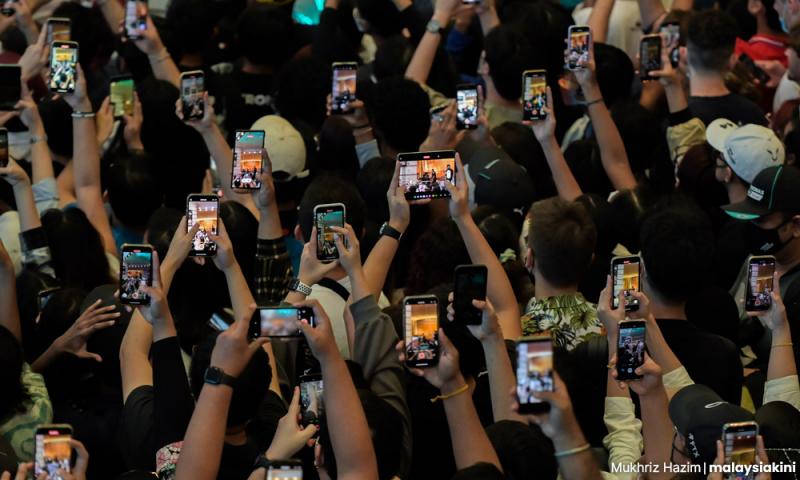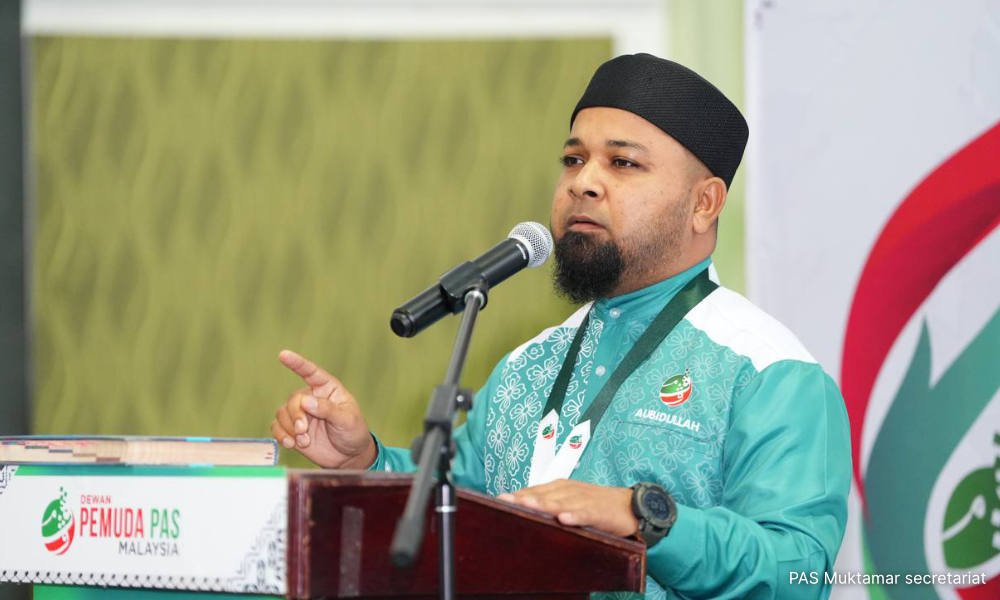
Andrew Sia
Published: Sep 27, 2024 10:00 AM
COMMENT | “Good food, good home” or “hou sikk, hou juu” is the Cantonese phrase often used in Malaysia to disparage the younger urban generation.
They are seen as a tad too laid-back because their parents had provided them with comfortable surroundings, even into their 20s.
So why strive so hard when things are easy? This group are classified as Gen Z - those born roughly between 1997 and 2012.
In Malaysia, it was reported that over 60 percent of Gen Z workers could not cope with work-related stress, leading to extreme burnout and frequent job changes.
There are also claims that they are “spoilt” and can’t handle criticism at work.
Resourceful and idealistic
Yet on the flip side, we see enterprising youths starting their own businesses - cafes, online sales, flea market stalls, etc.
Recently, there was a story about S Kavievanan, an engineering graduate who survived Covid joblessness by selling masala tea on a bicycle.
He now manages two cafes and five stalls under the brand Tea Thambi across Kuala Lumpur and rakes in an impressive RM100,000 monthly.
The young are also socially conscious. Psychology graduate Suzanne Ling started helping desperate refugees near her home. She now runs a social enterprise called Picha Eats where refugees are empowered to become food entrepreneurs.
Published: Sep 27, 2024 10:00 AM
COMMENT | “Good food, good home” or “hou sikk, hou juu” is the Cantonese phrase often used in Malaysia to disparage the younger urban generation.
They are seen as a tad too laid-back because their parents had provided them with comfortable surroundings, even into their 20s.
So why strive so hard when things are easy? This group are classified as Gen Z - those born roughly between 1997 and 2012.
In Malaysia, it was reported that over 60 percent of Gen Z workers could not cope with work-related stress, leading to extreme burnout and frequent job changes.
There are also claims that they are “spoilt” and can’t handle criticism at work.
Resourceful and idealistic
Yet on the flip side, we see enterprising youths starting their own businesses - cafes, online sales, flea market stalls, etc.
Recently, there was a story about S Kavievanan, an engineering graduate who survived Covid joblessness by selling masala tea on a bicycle.
He now manages two cafes and five stalls under the brand Tea Thambi across Kuala Lumpur and rakes in an impressive RM100,000 monthly.
The young are also socially conscious. Psychology graduate Suzanne Ling started helping desperate refugees near her home. She now runs a social enterprise called Picha Eats where refugees are empowered to become food entrepreneurs.

Suzanne Ling
However, she explained that many older people were not so supportive of her work.
“They feel they had to struggle to provide for themselves. They were not thinking so much about giving to others,” Ling explained.
In other words, growing up amid relative prosperity can also lead youth to look beyond personal survival into doing things for the greater good.
Race and religion
However, not all youth leaders are giving the right inspiration. Rather, they make controversial headlines.
For example, Selangor PAS Youth secretary Aubidullah Fahim Ibrahim proposed that young party leaders should take wives from different races and cultures to get more non-Malay votes.
However, she explained that many older people were not so supportive of her work.
“They feel they had to struggle to provide for themselves. They were not thinking so much about giving to others,” Ling explained.
In other words, growing up amid relative prosperity can also lead youth to look beyond personal survival into doing things for the greater good.
Race and religion
However, not all youth leaders are giving the right inspiration. Rather, they make controversial headlines.
For example, Selangor PAS Youth secretary Aubidullah Fahim Ibrahim proposed that young party leaders should take wives from different races and cultures to get more non-Malay votes.

Selangor PAS Youth secretary Aubidullah Fahim Ibrahim
And then we have Umno Youth chief Dr Muhamad Akmal Saleh who has become infamous for jumping on every racial or religious issue he can find to score political points.
So much so that there has been talk of Chinese voters boycotting the Umno candidate at the Mahkota by-election.
Politicians who peddle their stale products of racial insecurity (“we” are under threat from “them”) still get support because some want to preserve their racial privileges at all costs. This includes preferential entrance into cheap public universities.
One wishes that such politicians would instead focus on proposing solid new ideas to solve the economic woes of the young, of all races.
HR view of youth
What do human resource managers think of youth?
A study by the Chartered Management Institute (CMI) of the United Kingdom, found that managers under 35 will ask for flexible work-from-home arrangements.
“Gen Z have their own priorities about work,” CMI UK’s policy director Anthony Painter explained.
The latest data show that if companies are not willing to meet the needs of Gen Z, then the talented ones are likely to find their own path or even start their own business.
“Gen Z want to build jobs that suit their lifestyle, not to adjust their lifestyle around their jobs,” added Painter.
According to a report entitled “Understanding Generation Z in the Workplace” by consulting firm Deloitte, there is a 50-50 chance that they will choose more meaningful jobs with lower salaries rather than boring ones that pay more.
And then we have Umno Youth chief Dr Muhamad Akmal Saleh who has become infamous for jumping on every racial or religious issue he can find to score political points.
So much so that there has been talk of Chinese voters boycotting the Umno candidate at the Mahkota by-election.
Politicians who peddle their stale products of racial insecurity (“we” are under threat from “them”) still get support because some want to preserve their racial privileges at all costs. This includes preferential entrance into cheap public universities.
One wishes that such politicians would instead focus on proposing solid new ideas to solve the economic woes of the young, of all races.
HR view of youth
What do human resource managers think of youth?
A study by the Chartered Management Institute (CMI) of the United Kingdom, found that managers under 35 will ask for flexible work-from-home arrangements.
“Gen Z have their own priorities about work,” CMI UK’s policy director Anthony Painter explained.
The latest data show that if companies are not willing to meet the needs of Gen Z, then the talented ones are likely to find their own path or even start their own business.
“Gen Z want to build jobs that suit their lifestyle, not to adjust their lifestyle around their jobs,” added Painter.
According to a report entitled “Understanding Generation Z in the Workplace” by consulting firm Deloitte, there is a 50-50 chance that they will choose more meaningful jobs with lower salaries rather than boring ones that pay more.

To win the hearts of Gen Z, employers will need to be seriously involved in environmental and social well-being issues, Deloitte noted.
This makes me wonder, what if companies can do what people like Ling are doing for refugees?
Less politics, better jobs
According to Merdeka Centre Programme director Ibrahim Suffian, many youth are anxious about the economic situation and the fact that their wages aren’t keeping pace with the rising cost of living.
In their recent Merdeka Youth Survey of 1,605 youths aged 18 to 30 (part of Gen Z), 52 percent of respondents feel the country is headed in the wrong direction.
The top concerns are economic issues, followed by governance, politics, racial tensions, and leadership challenges.
The survey also revealed a sharp decline in youth interest in politics, with only 31 percent of respondents showing active political engagement - down from 49 percent last year.
Or in the famous words of political strategist James Carville, “It’s the economy, stupid”.
This phrase guided Bill Clinton’s successful run for the presidency in 1992 when America was having an economic recession and the incumbent, George HW Bush, was seen as out of touch with the needs of ordinary people.
What can we surmise from all this? Those shouting about 3R (race, religion and royalty) issues and dependency on state support may grab the headlines and score brownie points for their political careers.
But youth themselves may be better served if the system focuses on a different type of 3R - reinvention, resilience and resourcefulness.
That may break any “good food, good home” stereotype of them being too laid-back and soft.
This makes me wonder, what if companies can do what people like Ling are doing for refugees?
Less politics, better jobs
According to Merdeka Centre Programme director Ibrahim Suffian, many youth are anxious about the economic situation and the fact that their wages aren’t keeping pace with the rising cost of living.
In their recent Merdeka Youth Survey of 1,605 youths aged 18 to 30 (part of Gen Z), 52 percent of respondents feel the country is headed in the wrong direction.
The top concerns are economic issues, followed by governance, politics, racial tensions, and leadership challenges.
The survey also revealed a sharp decline in youth interest in politics, with only 31 percent of respondents showing active political engagement - down from 49 percent last year.
Or in the famous words of political strategist James Carville, “It’s the economy, stupid”.
This phrase guided Bill Clinton’s successful run for the presidency in 1992 when America was having an economic recession and the incumbent, George HW Bush, was seen as out of touch with the needs of ordinary people.
What can we surmise from all this? Those shouting about 3R (race, religion and royalty) issues and dependency on state support may grab the headlines and score brownie points for their political careers.
But youth themselves may be better served if the system focuses on a different type of 3R - reinvention, resilience and resourcefulness.
That may break any “good food, good home” stereotype of them being too laid-back and soft.
ANDREW SIA is a veteran journalist who likes teh tarik khau kurang manis. You are welcome to give him ideas to brew at tehtarik@gmail.com

No comments:
Post a Comment